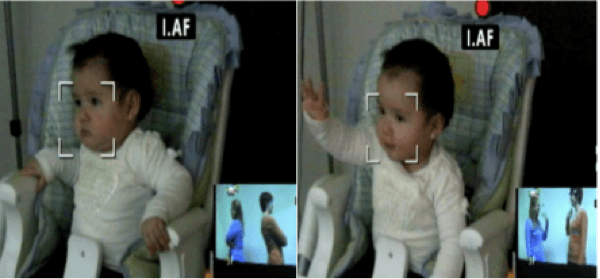How do infants begin to think about social relationships?

Zoe Liberman
Doctoral Student
 Past research has found that infants look longer at events they find unexpected than at events they expect to happen. So, in some studies we introduce infants to people who are similar to each other, or different from each other and then use each infants’ looking time to ask whether they expect those people to affiliate with each other or not. In other studies we ask whether infants expect that people who affiliate with each other to be similar to one another, and whether infants think that people who are similar to each other on dimension will be similar to each other on another dimension
Past research has found that infants look longer at events they find unexpected than at events they expect to happen. So, in some studies we introduce infants to people who are similar to each other, or different from each other and then use each infants’ looking time to ask whether they expect those people to affiliate with each other or not. In other studies we ask whether infants expect that people who affiliate with each other to be similar to one another, and whether infants think that people who are similar to each other on dimension will be similar to each other on another dimension
Publications
- Liberman, Z., Kinzler, K. D., & Woodward, A. L. (2014). Friends or foes: Infants use shared evaluations to infer others’ social relationships. Journal of Experimental Psychology: General, 143(3), 966-971.
- Hamlin, J. K., Mahajan, N., Liberman, Z., & Wynn, K. (2013). Not like me = bad: Infants prefer those who harm dissimilar others. Psychological Science, 24(4), 589-594.